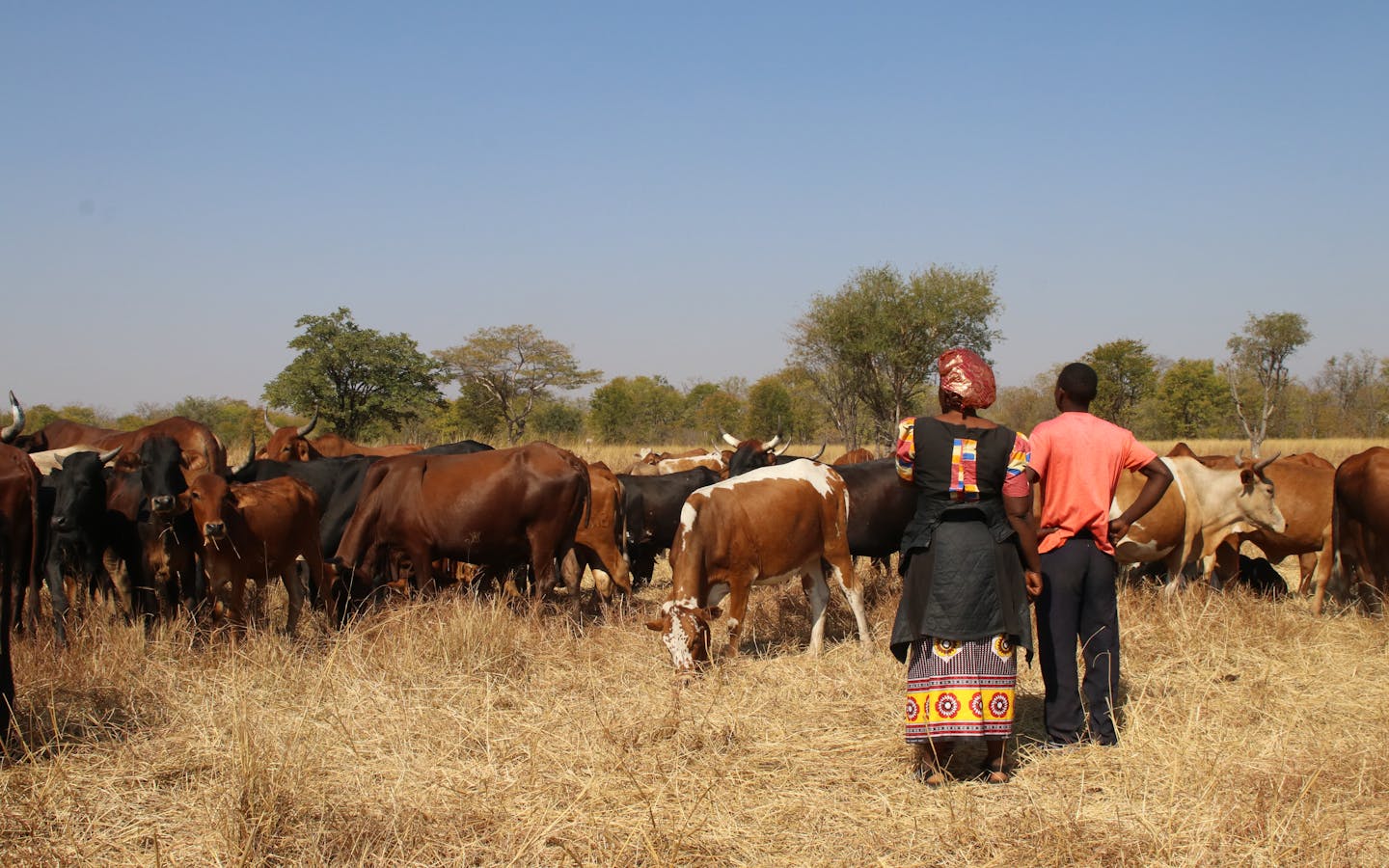
Funding
Funders:
- French Development Agency (Agence Française de Dévelopement)
- Le Fonds français pour l'environnement mondial (FFEM)
Total investment:
- €5 million (AFD grant)
- €2.6 million (FFEM grant)
- €4.6million (co-finance)
- €500k (EU-Botswana)
Duration: 2020-2026
Implementation countries: Botswana, South Africa, Zambia and Zimbabwe
In the drylands of Southern Africa, many communities have a long tradition of keeping livestock. Degraded rangelands, livestock-wildlife conflict, livestock disease and limited access to viable markets contribute to reduced socio-economic opportunities. This problem is particularly pronounced in the Trans-Frontier Conservation Areas (TFCA) of Southern Africa, which cuts across national jurisdictions due to wildlife and livestock migration trends. This gives rise to competition for resources between communities, livestock and wildlife. Similarly, the aquatic ecosystem in the Lower Zambezi is vulnerable and could suffer from rapid degradation of its fisheries if the balance between the various resource users and their effects on the environment is not managed.
In Ngamiland, Botswana traditional livestock agriculture and tourism are important sectors for livelihoods and formal employment. However, outbreaks of Foot and mouth disease (FMD) and lack of other economic opportunities challenge these rural communities’ livelihoods.
The Pro-nature Enterprises Project collaborates with communities and relevant stakeholders to promote rangeland restoration and coexistence practices through the Herding4Health programme, implement sustainable fisheries management, and unlock investment for nature-friendly enterprises (in livestock, fisheries, eco-tourism, horticulture, natural products etc).
Project objectives
- Conserve and restore 1 million hectares of critical habitats in trans frontier conservation areas through incentive-based sustainable livestock systems (rangelands restoration)
- Develop sustainable fisheries co-management systems between communities and tourism operators for 250km along the trans-frontier lower Zambezi River
- Benefit at least 30,000 people (more than half of them women) through nature-friendly livestock, fisheries and tourism enterprises
- Secure at least 6 investments in community-based enterprises by private sector partners and impact investment funds
- Document and disseminate lessons learned
Implementation sites and partners

Botswana
- Habu, Botswana | Wild Entrust
- Eretsha, Botswana | Communities Living Among Wildlife Sustainably (CLAWS)
Zambia
- Simalaha, Zambia | Peace Parks Foundation
- Lower Zambezi, Zambia | Conservation Lower Zambezi
South Africa
- Mnisi, South Africa | Conservation South Africa
- Mvenyane, South Africa | Indalo Inclusive

